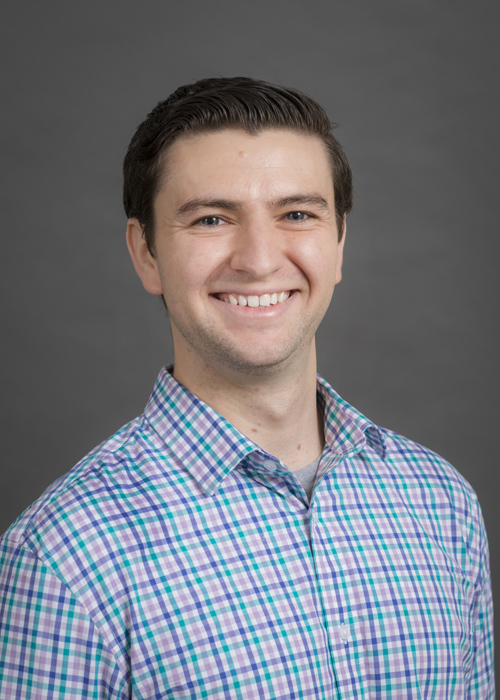
Elijah Olivas, Graduate student, Community and Behavioral Health
Strengthens health systems
• What is your degree program and expected graduation date? I will be graduating with a Master of Public Health degree, with a concentration in Community and Behavioral Health, in May 2019.
• Please describe your research: My research involves human development in global, low-resource contexts at the nexus of short-term, humanitarian relief and long-term, community centered development. I tend to incorporate quantitative measurements of systems dynamics (e.g. complex adaptive systems theory, health systems strengthening) with the ultimate goal of empowering universal autonomy to achieve individual happiness.
• In simple terms, why does this research matter? Put simply, I aim to realize a reality where all are capable of creating happiness for themselves. Achieving this requires understanding – and addressing – all of the complex systems of politics, health, education, economics, society, and more that perpetuate marginalization by creating barriers for those with the fewest resources to cope and overcome.
• How soon after starting at the University of Iowa were you able to participate in research? I actually began research with some faculty members in my department a year or so prior to beginning my studies here. I reached out to researchers to offer assistance and have been involved in projects here and around the world ever since.
• How has being involved in research made you more successful at the University of Iowa? Research, for me, offers a sense of freedom in thought. I always knew that, while my program would teach me valuable methods for identifying and addressing systemic health problems, my long-term work would require knowledge from many different disciplines. Being involved in research projects (and subsequently exploring my own topics) has almost exclusively exposed me to the issues and problem-solving methodologies that are crucial to achieving my goals of reshaping the complex systems that perpetuate inequities in the pursuit of happiness. I am also grateful to have built a network of incredible connections based on my research projects, which is helping me determine my next steps toward applying my research to practice.
• What are your career goals and/or plans after graduation? I am in the midst of applying both to PhD programs and to careers in sustainable development and global health. I look forward to learning more about the complexities of all of the systems that underlie individual autonomy and the pursuit of happiness – the PhD program I am most interested in covers sustainable development and complex adaptive systems science – but I am also eager to begin using my research to catalyze change. Either way, in the long-run, I plan to further my education but to ultimately work with ministries of health and other government bureaus to plan systems for sustainable development.
• Faculty mentor/advisor: Dr. William T. Story, PhD, MPH
• Hometown: Chandler, Arizona
Banner location: not on display—
